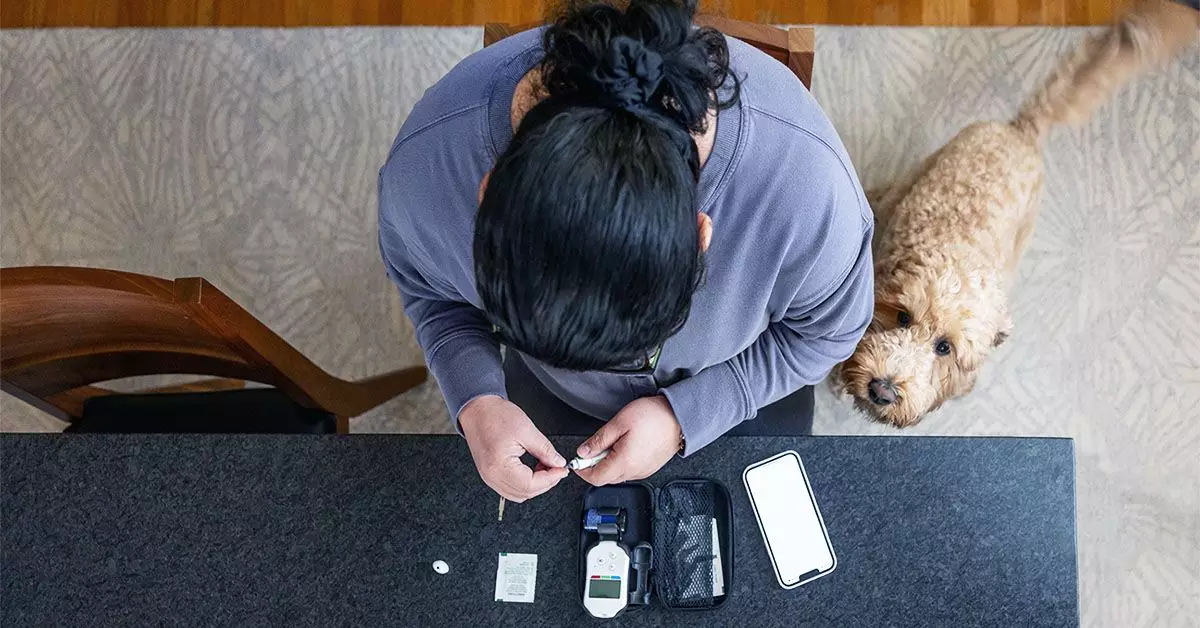Undergoing chemotherapy can be a taxing experience for anyone, not just due to the emotional toll of battling cancer but also because of the myriad of physical changes that can occur. One critical aspect that often gets overshadowed in discussions about cancer treatment is blood sugar management. For individuals with diabetes, or even those without a prior history of the condition, maintaining steady blood sugar levels during chemotherapy is paramount. This article explores the intersection of chemotherapy and blood sugar regulation and offers actionable strategies to manage this vital area of health.
Chemotherapy drugs are designed to target rapidly dividing cancer cells, but they do not selectively affect only these cells—healthy cells can also be impacted. For patients already managing diabetes, the challenge is twofold: Not only may blood sugar levels rise due to the treatment, but the body might also develop insulin resistance as a side effect. Insulin plays a significant role in regulating glucose levels in our blood, and any impediment to its function can result in hyperglycemia, or high blood sugar.
Moreover, the use of adjunct treatments like steroids to alleviate chemotherapy side effects, although helpful, further complicates blood sugar management. Steroids, while effective in minimizing inflammation and nausea, are notorious for raising blood sugar levels. Consequently, chemotherapeutic agents and steroids must be monitored closely to mitigate risks and complications for individuals already living with diabetes.
For individuals with diabetes, a tailored approach to insulin management is essential during chemotherapy. Doctors often need to reassess the insulin dosage, particularly if patients were stable prior to treatment. Those who require insulin but have not previously used it may find themselves needing it more urgently as their blood sugar levels oscillate unpredictably.
Regular communication with healthcare providers will guide adjustments in medication. It is advisable to keep a record of blood sugar readings and discuss these with a primary care physician to determine if changes to insulin types or dosages are necessary. Health professionals may suggest starting a comprehensive diabetes management plan, including specific therapeutic goals tailored to the individual’s unique circumstances during chemotherapy.
Nutritional strategies are pivotal for managing blood sugar levels effectively. Eating regular, smaller meals throughout the day can help stabilize glucose levels, mitigated by the nature of chemotherapy—often causing nausea that complicates eating. To address this, individuals can consider several options:
1. **Meal Composition**: Focusing on a balanced diet rich in proteins, whole grains, and low-glycemic index carbohydrates may provide lasting energy without significant spikes in blood sugar.
2. **Avoiding Certain Foods**: Prohibiting strong-smelling, greasy, or spicy foods can ease the nausea often associated with chemotherapy and help individuals find suitable and palatable meal choices.
3. **Staying Hydrated**: Hydration is crucial. Water, being calorie-free, is ideal. Infusing it with fruit slices can enhance flavor without negatively affecting blood sugar.
Tracking what one eats and how each food affects their body can also be insightful. Keeping a food diary allows individuals to correlate their meals with blood sugar fluctuations, empowering informed dietary choices.
Incorporating physical activity, even in manageable increments, plays a vital role in controlling blood sugar levels during chemotherapy. The Centers for Disease Control and Prevention (CDC) recommends aiming for 150 minutes of moderate exercise per week. However, during chemotherapy, it might be wise to adapt this goal according to the individual’s energy levels.
For example, dividing exercise into 10- or 15-minute sessions throughout the day can make physical activity more achievable. Engaging in activities like walking, stretching, or light yoga has shown to help maintain insulin sensitivity and lower blood sugar levels, creating a beneficial feedback loop for those undergoing treatment. Always consult the healthcare team before embarking on an exercise regimen to ensure it aligns with current health needs and physical capability.
Frequent monitoring of blood sugar levels is crucial during this treatment phase. Establishing a routine for checking blood sugar levels – upon waking, after meals, and before sleep – can provide a comprehensive overview of one’s glycemic control. Regular assessment also alerts healthcare providers to any anomalies that may necessitate interventions or alterations in treatment.
New findings suggest that poor blood sugar control during chemotherapy can lead to complications like reduced effectiveness of cancer treatments and increased risk of side effects. Therefore, for individuals with diabetes, managing blood sugar levels is not just about day-to-day comfort but about maximizing the effectiveness of their cancer treatment.
Cancer is daunting, but proactive health management can significantly improve quality of life during treatment. Individuals should actively engage with their healthcare providers, utilizing resources such as dietitians and endocrinologists to construct a comprehensive plan for blood sugar management during chemotherapy. With the right strategies, individuals can take control of their health, ensuring their focus can remain on recovery and healing.

